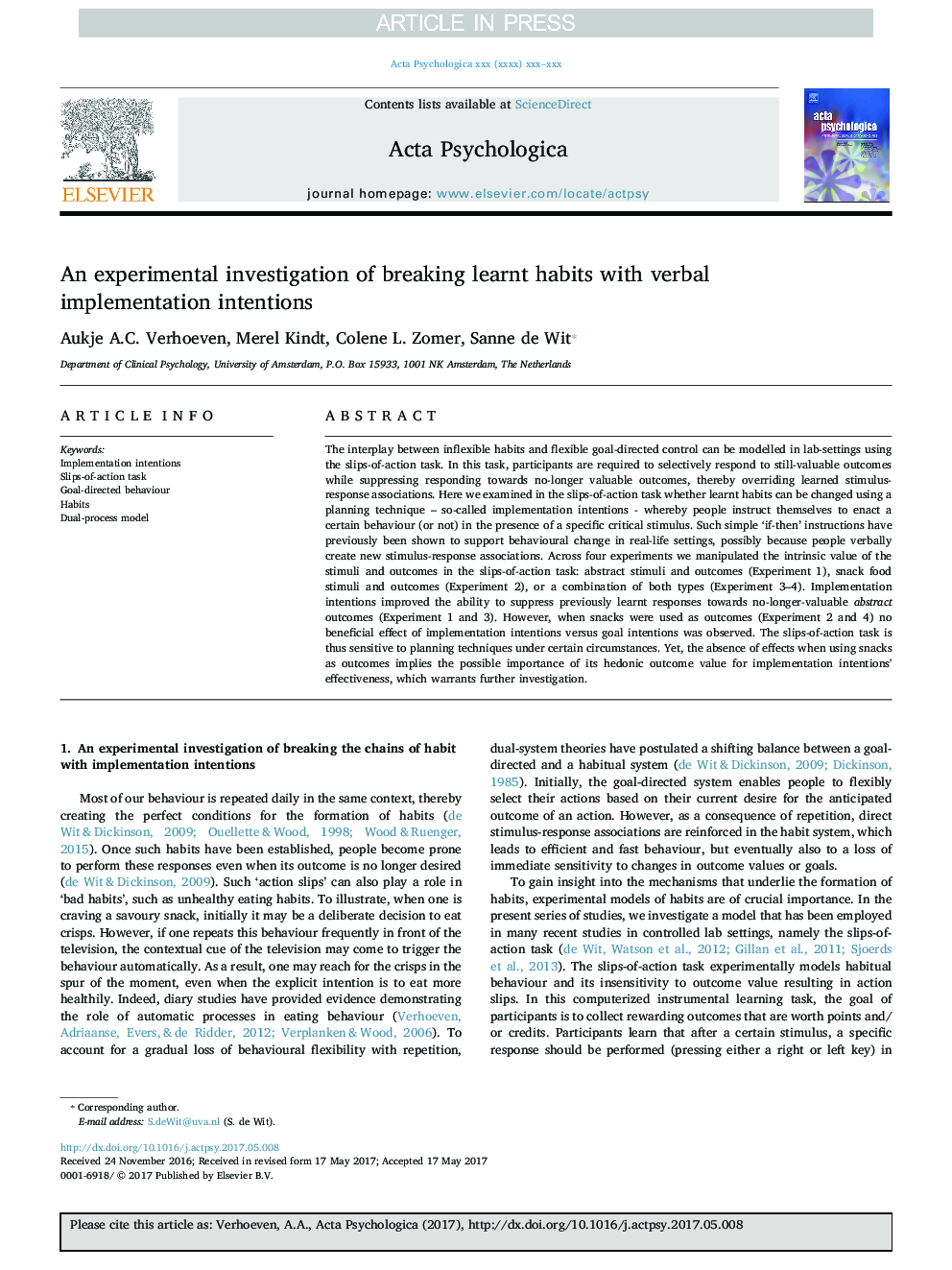| Article ID | Journal | Published Year | Pages | File Type |
|---|---|---|---|---|
| 7276814 | Acta Psychologica | 2018 | 13 Pages |
Abstract
The interplay between inflexible habits and flexible goal-directed control can be modelled in lab-settings using the slips-of-action task. In this task, participants are required to selectively respond to still-valuable outcomes while suppressing responding towards no-longer valuable outcomes, thereby overriding learned stimulus-response associations. Here we examined in the slips-of-action task whether learnt habits can be changed using a planning technique - so-called implementation intentions - whereby people instruct themselves to enact a certain behaviour (or not) in the presence of a specific critical stimulus. Such simple 'if-then' instructions have previously been shown to support behavioural change in real-life settings, possibly because people verbally create new stimulus-response associations. Across four experiments we manipulated the intrinsic value of the stimuli and outcomes in the slips-of-action task: abstract stimuli and outcomes (Experiment 1), snack food stimuli and outcomes (Experiment 2), or a combination of both types (Experiment 3-4). Implementation intentions improved the ability to suppress previously learnt responses towards no-longer-valuable abstract outcomes (Experiment 1 and 3). However, when snacks were used as outcomes (Experiment 2 and 4) no beneficial effect of implementation intentions versus goal intentions was observed. The slips-of-action task is thus sensitive to planning techniques under certain circumstances. Yet, the absence of effects when using snacks as outcomes implies the possible importance of its hedonic outcome value for implementation intentions' effectiveness, which warrants further investigation.
Related Topics
Life Sciences
Neuroscience
Cognitive Neuroscience
Authors
Aukje A.C. Verhoeven, Merel Kindt, Colene L. Zomer, Sanne de Wit,
